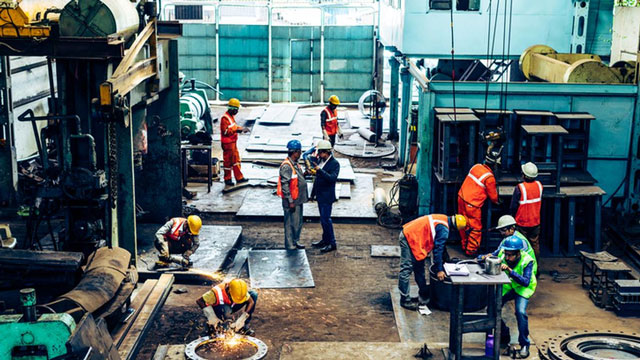Daijiworld Media Network – New Delhi
New Delhi, Nov 14: The Union government’s draft labour policy Shram Shakti Niti 2025 has sparked strong resistance from major Central Trade Unions (CTUs), barring the RSS-affiliated Bharatiya Mazdoor Sangh (BMS). In a tripartite meeting chaired by Union Labour Minister Mansukh Mandaviya on Thursday, ten CTUs jointly rejected the policy, calling it an ideological project that weakens workers’ rights instead of empowering them.
The unions said the draft attempts to redefine labour as a “sacred duty” rather than a right, while centralising authority and reducing the powers of State governments. They pointed out that labour falls under the Concurrent List, yet the policy reduces States to mere implementing agencies of a Central framework. The CTUs demanded that the Centre immediately convene the Indian Labour Conference for wider consultation.

The unions also criticised the policy for sidelining trade unions and undermining collective bargaining, which they said violates Article 19(1)(c) of the Constitution. They further expressed concern over references to ancient texts like Manusmriti, Yajnavalkyasmriti, Sukra Niti, and Arthashastra, arguing that these works uphold caste hierarchies and contradict modern labour rights. Sources said the Minister signalled willingness to remove these references if necessary.
According to the CTUs, the draft repackages the unimplemented four Labour Codes under a new banner and proposes integrating social security systems in a way that could eventually eliminate employer contributions, even in organised sectors. They said the policy fails to meet International Labour Standards as well as Sustainable Development Goals.
Minister Mandaviya, however, assured stakeholders that the draft was not final and would be revised based on feedback. “Our aim is to collaborate and create a fair and resilient future of work. The policy will be finalised only after incorporating suitable changes,” he said.
States ruled by non-BJP governments have already insisted on broader consultation before moving ahead with the new labour framework.